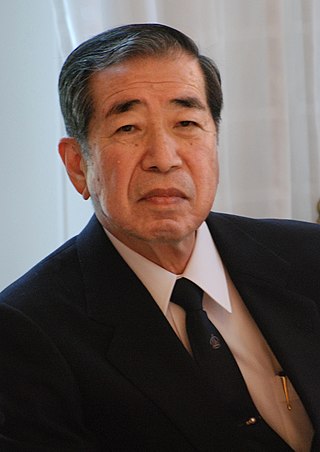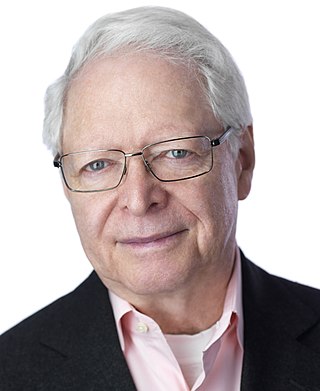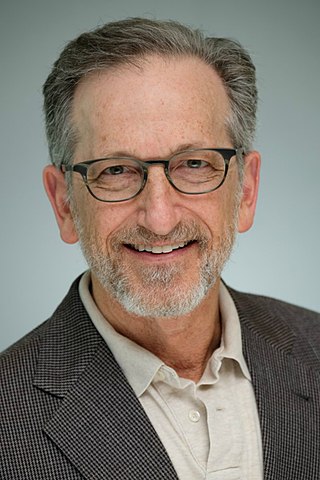The Crafoord Prize is an annual science prize established in 1980 by Holger Crafoord, a Swedish industrialist, and his wife Anna-Greta Crafoord. The Prize is awarded in partnership between the Royal Swedish Academy of Sciences and the Crafoord Foundation in Lund. The Academy is responsible for selecting the Crafoord Laureates. The prize is awarded in four categories: astronomy and mathematics; geosciences; biosciences, with particular emphasis on ecology; and polyarthritis, the disease from which Holger severely suffered in his last years.
Lasker–DeBakey Clinical Medical Research Award is one of four annual awards presented by the Lasker Foundation. The Lasker–DeBakey award is given to honor outstanding work for the understanding, diagnosis, prevention, treatment, and cure of disease. This award was renamed in 2008 in honor of Michael E. DeBakey. It was previously known as the Albert Lasker Award for Clinical Medical Research.
Rheumatoid factor (RF) is the autoantibody that was first found in rheumatoid arthritis. It is defined as an antibody against the Fc portion of IgG and different RFs can recognize different parts of the IgG-Fc. RF and IgG join to form immune complexes that contribute to the disease process such as chronic inflammation and joint destruction at the synovium and cartilage.
The Canada Gairdner International Award is given annually by the Gairdner Foundation at a special dinner to five individuals for outstanding discoveries or contributions to medical science. Receipt of the Gairdner is traditionally considered a precursor to winning the Nobel Prize in Medicine; as of 2020, 98 Nobel Prizes have been awarded to prior Gairdner recipients.
Imperial College School of Medicine (ICSM) is the undergraduate medical school of Imperial College London in England and one of the United Hospitals. It is part of the college's Faculty of Medicine and was formed by the merger of several historic medical schools. It's core campuses are located at South Kensington, St Mary's, Charing Cross, Hammersmith and Chelsea and Westminster. The school ranked 3rd in the world for medicine in the 2022 Times Higher Education World University Rankings.

Tadamitsu Kishimoto is a Japanese immunologist known for research on IgM and cytokines, most famously, interleukin 6.
A TNF inhibitor is a pharmaceutical drug that suppresses the physiologic response to tumor necrosis factor (TNF), which is part of the inflammatory response. TNF is involved in autoimmune and immune-mediated disorders such as rheumatoid arthritis, ankylosing spondylitis, inflammatory bowel disease, psoriasis, hidradenitis suppurativa and refractory asthma, so TNF inhibitors may be used in their treatment. The important side effects of TNF inhibitors include lymphomas, infections, congestive heart failure, demyelinating disease, a lupus-like syndrome, induction of auto-antibodies, injection site reactions, and systemic side effects.

Jan T. Vilček is a Slovak-American biomedical scientist, educator, inventor and philanthropist. He is a professor in the department of microbiology at the New York University School of Medicine, and chairman and CEO of The Vilcek Foundation. Vilček received his M.D. degree from Comenius University Medical School in Bratislava in 1957; and his Ph.D. in Virology from the Institute of Virology, Czechoslovak Academy of Sciences, Bratislava, in 1962.

Arthur L. Horwich is an American biologist and Sterling Professor of Genetics and Pediatrics at the Yale School of Medicine. Horwich has also been a Howard Hughes Medical Institute investigator since 1990. His research into protein folding uncovered the action of chaperonins, protein complexes that assist the folding of other proteins; Horwich first published this work in 1989.
The Dr. Paul Janssen Award for Biomedical Research is given annually by Johnson & Johnson to honor the work of an active scientist in academia, industry or a scientific institute in the field of biomedical research. It was established in 2004 and perpetuates the memory of Paul Janssen, the founder of Janssen Pharmaceutica, a Johnson & Johnson subsidiary.

Peter K. Gregersen is a geneticist who heads the Robert S. Boas Center for Genomics and Human Genetics at Northwell's Feinstein Institute for Medical Research in Manhasset, New York, and is a professor of molecular medicine at Hofstra Northwell School of Medicine. He received his MD from Columbia University in 1976.
Sir Marc Feldmann,, is an Australian-educated British immunologist. He is a professor at the University of Oxford and a senior research fellow at Somerville College, Oxford.

The Ernst Schering Prize is awarded annually by the Ernst Schering Foundation for especially outstanding basic research in the fields of medicine, biology or chemistry anywhere in the world. Established in 1991 by the Ernst Schering Research Foundation, and named after the German apothecary and industrialist, Ernst Christian Friedrich Schering, who founded the Schering Corporation, the prize is now worth €50,000.
Sir Amar Nath Maini was a Kenyan lawyer who became a prominent politician in British Uganda, and the first Mayor of Kampala.

Gary S. Firestein is an American rheumatologist, professor, and founding director of the Altman Clinical and Translational Research Institute (ACTRI) at the University of California San Diego and Senior Associate Vice Chancellor for Health Sciences at University of California, San Diego.
Paul-Peter Tak M.D. PhD FMedSci is an immunologist and academic specialising in the fields of internal medicine, rheumatology and immunology. Tak has been the President & CEO of Candel Therapeutics since September 2020.

Lars Klareskog is a Swedish physician, immunologist, and rheumatologist, known for research into the genetics of autoimmune diseases such as rheumatoid arthritis (RA).
Fionula Brennan (1957–2012) was an Irish immunologist and Professor of Cytokine Immunopathology at the Kennedy Institute of Rheumatology.
Paul Emery is a British rheumatologist, researcher, and academic. Emery has been the Versus Arthritis Professor of Rheumatology at the University of Leeds since 1995, Head of its Rheumatology Department from 1995 to 2008. He is Head of the Academic Unit of Musculoskeletal Disease and Lead Clinician of Rheumatology at the Leeds Teaching Hospital NHS Trust, and was the Director of the NIHR Leeds Biomedical Research Centre from 2009 to 2022. He is known for introducing early intervention in inflammatory arthritis. Emery played a critical role in bringing sensitive imaging (MRI) into rheumatology practice. In 2012, Emery was awarded the Carol Nachman Prize for Rheumatology, and as of 2023, he has published over 1250 peer-reviewed articles.
Josef Smolen is an Austrian rheumatologist and immunologist and professor emeritus at the Medical University of Vienna. Since 2018 he is chairman emeritus of the Department of Internal Medicine 3 and the Division of Rheumatology at the Medical University of Vienna and Vienna General Hospital and was the chairman of the 2nd Medical Department and Center for Diagnosis and Therapy of Rheumatic Diseases at the Lainz Hospital, now the Hietzing Clinic of the Vienna Health Association from 1989 to 2017.







